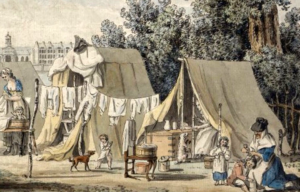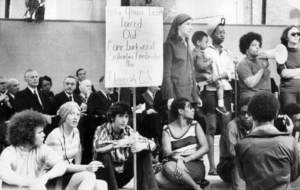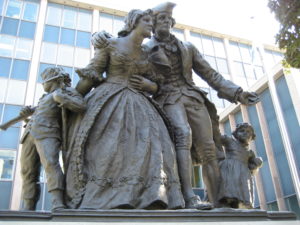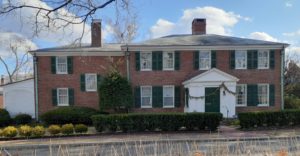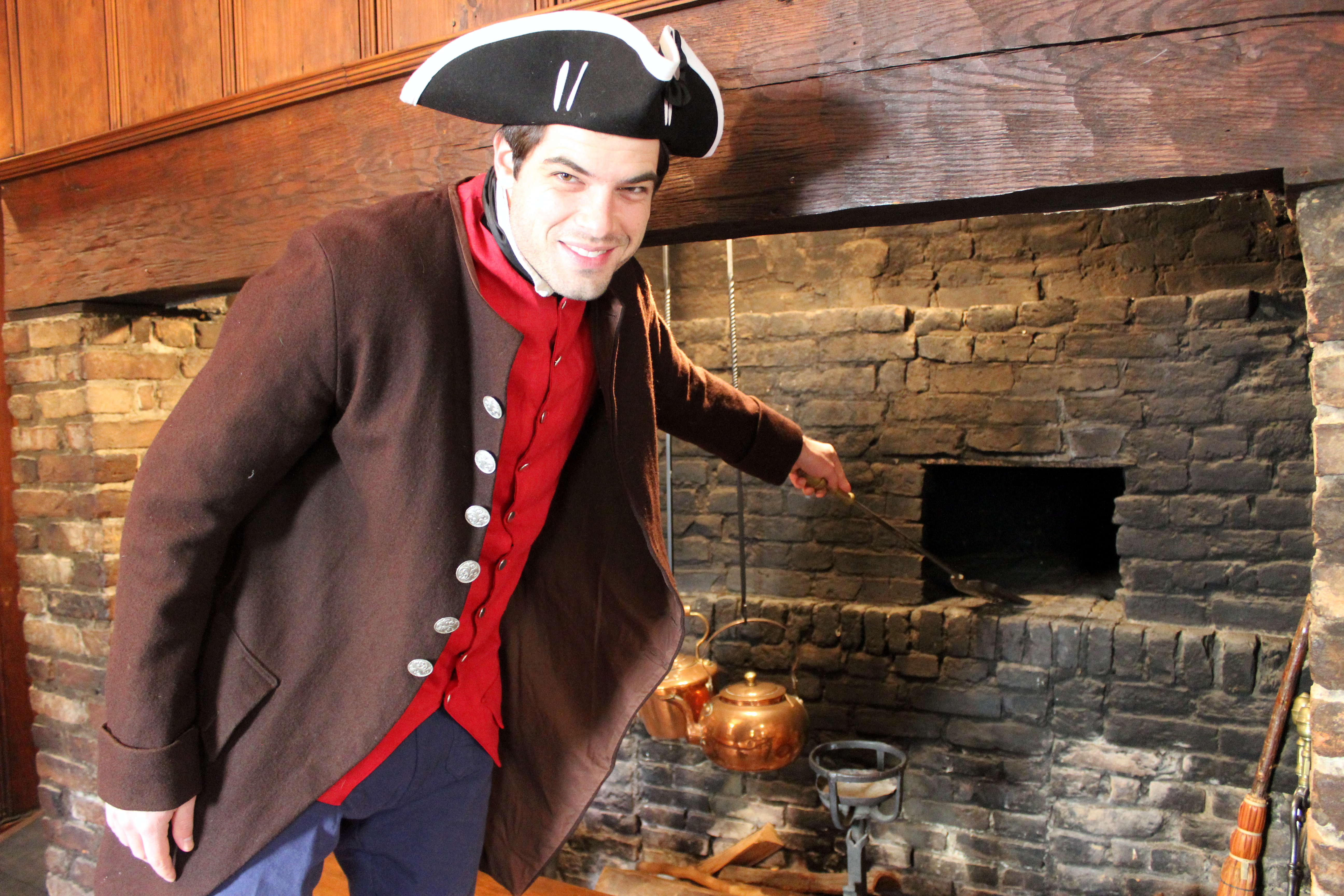Mercy Scollay Papers, 1775-1824
Library of Congress Subject Headings
Series Description and Folder Listing
1 box
.42 linear feet
Processor: Joey Grant
Date: July 2008
Acquisition: Letters donated April 1929 by Elizabeth Harris. Although the letters do not directly reflect the history of Cambridge they were acquired with the Harris Family Papers. The Dix Family, to whom she addressed the majority of the letters, are related to the Harris Family by marriage.
Access: There are no restrictions on this collection.
Permission to Publish: Requests for permission to publish from this collection should be made to the Executive Director.
Copyright: The Cambridge Historical Society does not hold the copyright on the materials in this collection.
Mercy Scollay
Mercy Scollay (1741-1826) was born in Boston, 11 September 1741, to John and Mercy Scollay. John Scollay was a member of The Sons of Liberty, a Boston fire marshal, and became chairman of the Boston board of selectmen in 1774, a position he held until 1790. Mercy was the sister of Colonel William Scollay of the Boston Regiment. William was an apothecary by trade, although he went into real estate, buying the building that later became known as the Scollay building, thus eventually lending his name to Scollay Square, now known as Government Center. Mercy’s sister Priscilla married Major Thomas Melville; they were the grandparents of Herman Melville. Mercy Scollay was engaged to Joseph Warren and cared for his children (one source states that she gave birth to an illegitimate child by Warren, but this claim is unsubstantiated by the letters in this collection)(Lokken, 71) after his first wife died in 1772. Mercy lived in Worcester with Dr. Elijah and Mrs. Dix with General Warren’s children, Elizabeth (Betsey) (1765-1804), Joseph (Josey) (1768-1790), Mary (Polly) (1771?-1826), and Richard (Dicky) (1772?-1793?), until his death at the Battle of Bunker Hill. At that time Mercy returned to her parents home in Boston and the children were sent to live with relatives. In a 1776 letter to Mrs. Dix, Mercy describes a conversation with General Warren’s brother John in which she tells him that she feels that she had been treated “ungenerously” in regards to the children (Letter 4). By July, Mercy announces that “the children are again with her;” but by November that same year she writes that she visits the children (Letters 5 and 6). Joseph was sent to school, Elizabeth lived with Mrs. Miller to learn “music, dancing, writing and arithmetic, and the best needle-work,” while Mercy took care of Mary and Richard at her parents house. Mercy was a friend of Benedict Arnold, who sent her a check for five hundred dollars for the care of General Warren’s children. He also wrote a letter attempting to obtain a portion of General Warren’s pension for the children. At some point after 1779, the children went to live with General Warren’s younger brother, Dr. John Warren. Mercy nursed her ailing parents until they passed then moved to Medfield, MA with her sister and husband Mary and Thomas Prentiss. Letters sent after 1797 were addressed from Medfield. She visited her friends in Boston and Worcester periodically, but after a time the visits became less frequent due to Mercy’s ailing health. By 1819 Mercy had lost one foot and most of her hearing and in 1822 she dislocated her shoulder. Mercy died 8 January 1826.
Sources:
The Colonial Society of Massachusetts. Vol. VIII. Transactions 1902-1904. Boston, 1906. 234-235.
The New-England Historical and Genealogical Register, Vol. LVIII. Boston, 1904. 346.
Kruh, David. Always Something Doing: Boston’s Infamous Scollay Square. Boston, MA: Northeastern University Press, 1999. 12-17.
Frothingham, Richard. Life and Times of General Warren. Boston: Little Brown, & Company, 1865.
Lokken, Mary. Indians in Our Trees. San Antonio, Tex. : William H. Mullens, 1989.
Related Collections:
The Harris Family Papers, Cambridge Historical Society.
Bigelow Family Papers, 1785-1859, American Antiquarian Society.
Melville, Herman Papers, 1749-1926, Harvard University, Houghton Library, Department C.
Miscellaneous Bound Manuscripts, Letter to Mercy Scollay, 19 February 1779. Arnold, Benedict, 1771-1801, The Massachusetts Historical Society.
Miscellaneous Bound Manuscripts, Letter to Mercy Scollay, 18 March 1777, Adams, Samuel, 1722-1803, The Massachusetts Historical Society.
Scollay Family Papers, The Massachusetts Historical Society
Scope and Content Note:
The Mercy Scollay papers consist of approximately 90 letters, the binding in which the letters were originally contained, transcriptions of letters 1-7, and two news articles pertaining to the Scollay family that have been copied onto acid free paper. Transcriptions were completed by the Works Progress Administration 8 February 1937. The letters have been removed from the binding and original order has been maintained. Letters are arranged in chronological order with numerical notations in the top center of each letter. Letters found loose in the volume have been numerically and alphabetically marked according to its appropriate chronological placement. The bound letters were given to the Cambridge Historical Society with numeric notations. Numeric and alphabetic notations were added to loose letters by the processor.
All letters were written by Mercy Scollay. The majority of the letters were addressed to Mrs. Dorothy Dix; a few to Dr. Elijah Dix; several to Mary Harris, the Dix’s daughter, and her husband Thaddeus Mason Harris; and one was addressed to Joseph Dix, the Dix’s son.
Letters 1-7 span the years 1775-1778. Mercy outlines a conversation that she had with John Hancock concerning General Joseph Warren’s belongings and the careless way Warren’s brother John had handled the valuables. John had also sold his brother’s feather beds to General Washington. Mercy describes the climate of those in Boston at this time, including her own melancholy. She also mentions a letter from her father informing her of his and her mother’s visits to the prisoners. In the same letter, dated 18 August, she writes, “I’ve seen the two Mr. Adams’es Mr. Hancock and Dr. Cooper but find nothing can be done respecting the children till a Judge is appointed” (Letter 1). Mercy laments the death of General Warren and relays the difficulty and cost of procuring goods for Mrs. Dix (Letter 2). In 1776, a conversation is outlined with Dr. Bulfinch regarding Mercy assisting him in obtaining provisions for the children including inoculations for small pox, although it was rejected as “it might alarm the Country People” (Letter 3). She also comments on the procurement of oil and rum, but the lack of linen in Boston (Letter 3a), a description of Boston and the aftermath of the troops leaving, and accounts of General Howe occupying Halifax (Letter 4). Scollay also describes a visit with John Warren and their discussion of her relationship with Joseph and her feelings of being treated “ungenerously” in regard to the children (Letter 4). In the same year Scollay states that the children are with her and under inoculation for small pox (Letter 5) and that her father is ill (Letter 6). In 1777, she describes an anticipated visit by John Hancock and a letter from Mr. Adams (Letter 7).
The remaining letters consist of family news, friendly discussion, and mentions of deaths and illness and Mercy’s worship and reliance on God. Often she mentions her anticipation of the next life where sin and sorrow are no more. She talks about the death and maladies of a number of different people although names are not generally provided. In 1782, Mercy discusses the sickness of Mrs. Melville and her regret that she had missed a visit from Hannah Adams (Letter 8). In 1787, she again describes the sorrows of war (Letter 10). By the 1790, Scollay’s parents had become very ill and she assumes their care (Letter 12). In 1793, Scollay sends her congratulations to Mary on her marriage to Thaddeus Mason Harris (Letter 17). In 1799, Mercy discusses Miss (Hannah) Adams’ excitement about the reception of her unidentified publication (Letter 18b) and comments on politics (Letter 20). Between 1801 and 1818 Mercy sends condolences on the death of acquaintances, comments on books that she is reading, and discusses politics and war. After 1818 she makes frequent references to her own illness. Letters 20, 39, and 68c have had portions removed.
The letters underwent conservation treatment at the Northwest Document Observation Center in 2006 with funding provided by the Society of the Cincinnati.
Library of Congress Subject Headings
- Scollay, Mercy, 1741-1826.
- Dix, Dr. Elijah–Correspondence.
- Dix, Dorothy–Correspondence.
- Harris, Thaddeus Mason, 1768-1842–Correspondence.
- Harris, Mary–Correspondence.
- Boston (Mass.)–History–Revolution, 1775-1783.
- Boston (Mass.)–Social life and customs.
- Medfield (Mass.)–Social life and customs.
Series I. Correspondence 1775-1824
Box|Folder
1|1|Mercy Scollay Letters 1-10, 1775-1787.
1|2|Mercy Scollay Letters 11-20, 1789-1800.
1|3|Mercy Scollay Letters 21-30, 1800-1804.
1|4|Mercy Scollay Letters 31-40, 1804-1808.
1|5|Mercy Scollay Letters 41-50, 1809-1810.
1|6|Mercy Scollay Letters 51-60, 1810-1811.
1|7|Mercy Scollay Letters 61-70, 1811-1818.
1|8|Mercy Scollay Letters 71-80, 1818-1822.
1|9|Mercy Scollay Letters 81-83, 1822-1824.
1|10|Endpapers.
1|11|Transcriptions of letters 1-7.
1|12|Clippings.
||Original Binding cover (removed from box)

